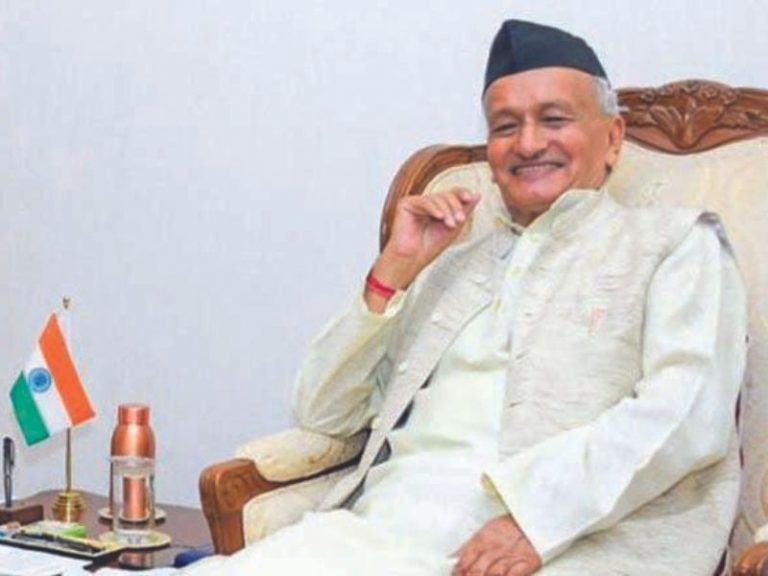No products in the cart.
Maharashtra: Deepening politicisation
The opposition Bharatiya Janata Party (BJP) is gearing to hit the streets with statewide protests against the incumbent Maha Vikas Aghadi (MVA) coalition government’s proposal to curb the powers of the governor in 11 state government universities. By law and convention, state governors appointed by the Central government, are ex-officio chancellors of all public universities in every state of the Indian Union.
In late December, the MVA government amended the Maharashtra Public Universities Act (MPUA), 2016 to vest the state government with greater power while appointing vice-chancellors, senates and managements of public universities. Under the amendment, the higher and technical education minister will assume the office of ‘pro-chancellor’ of all state government universities. The opposition BJP contends this amendment will curtail the power of the governor/chancellor.

Governor Koshiyari: activist chancellor
The background of this latest face-off between the MVA government and the BJP is that since November 11, 2019, when the Shiv Sena dramatically ended its 25-year alliance with the BJP and coalesced with the Congress and the Nationalist Congress Party (NCP) to form Maharashtra’s MVA coalition, it has been at odds with governor Bhagat Singh Koshiyari, a former activist of the RSS, the ideological mentor of the BJP which has been ruling at the Centre since 2014.
In July 2020, Uday Samant, higher and technical education minister, ordered cancellation of final year degree college exams because of the rising number of Covid-19 positive cases in the state. However, Koshiyari took umbrage and wrote a scathing letter to the chief minister Uddhav Thackeray protesting the minister’s intervention without consulting the chancellor’s office. According to the MVA government, despite the chancellor’s position being of a ceremonial figurehead, Koshiyari has been taking more than passing interest in the administrative affairs of public universities in Maharashtra.
In October 2020, the Maharashtra higher and technical education ministry constituted a 14-member committee to suggest amendments to MPUA, 2016 as also to implement the National Education Policy (NEP), 2020 in the state. The committee chaired by Sukhdeo Thorat, a former chairman of UGC (University Grants Commission), suggested introducing the position of pro-chancellor to create “a balance of power” between the governor and state government.
Moreover, the Thorat committee suggested amendment of s. 12 of the Act under which search panels to select vice-chancellors, submitted their shortlist directly to the chancellor’s office. In the event the governor did not approve the names on the shortlist, he was empowered to direct the search committee to submit a new list. The amended Bill directs the search committee to submit five names to the state government. From the list, the government forwards two names to the governor to approve one.
The opposition’s attempt to launch a statewide protest after the winter session was cut short due to rising Covid infections in January. However, the Yuva Morcha and Akhil Bharatiya Vidyarthi Parishad (ABVP) — youth wings of BJP/ RSS — have held several round table conferences, organised student signature campaigns and written letters against the Bill to the state’s chief minister, education minister and the governor himself. The party has also reportedly briefed senior counsel to draft a writ petition to be filed in the Bombay high court.
Meanwhile, politically independent and bona fide educationists in the state are resigned to the continuous political interference in academia. Vice-chancellors who have the power to make large purchases and appoint faculty have often patronised party sympathisers and recruited party ideologues into faculty.
In this connection it is pertinent to note that in 2015, the BJP appointed Dr. Sanjay Deshmukh, a former director (research) of the RSS think tank, Prabhodini Malghi, as vice chancellor of Mumbai University (estb.1857). Deshmukh has the dubious distinction of being the first VC in Mumbai University’s 164-year history to be sacked from office for incompetence.
“The BJP which is criticising the MVA government for politicising universities and VC appointments needs treatment for political schizophrenia. This party has blatantly appointed RSS ideologues to high office in academia. Way back in 2014, Dina Nath Batra, an RSS ideologue who can’t differentiate mythology from history, was appointed chairman of the Indian Council for Historical Research. And recently, BJP sympathiser Jagdish Kumar, hitherto controversial vice chancellor of JNU, was appointed chairman of the University Grants Commission while Santishree Pandit, political science professor of Savitribai Phule Pune University, was appointed as JNU’s first woman vice chancellor. Politics has struck very deep roots in Indian education,” says Chandrashekhar Kulkarni, senate member, Mumbai University.
With politicians intent on packing universities with their hand-picked selected nominees — even if underqualified — it’s hardly surprising that not even one of India’s 1,005 universities, some of them of over 150 years vintage, are ranked in the globally respected Top 200 league tables of the London-based varsity rating agencies, QS and Times Higher Education. On the other hand, China has five.
Dipta Joshi (Mumbai)
Also read: Maharashtra: Time of reckoning















Add comment